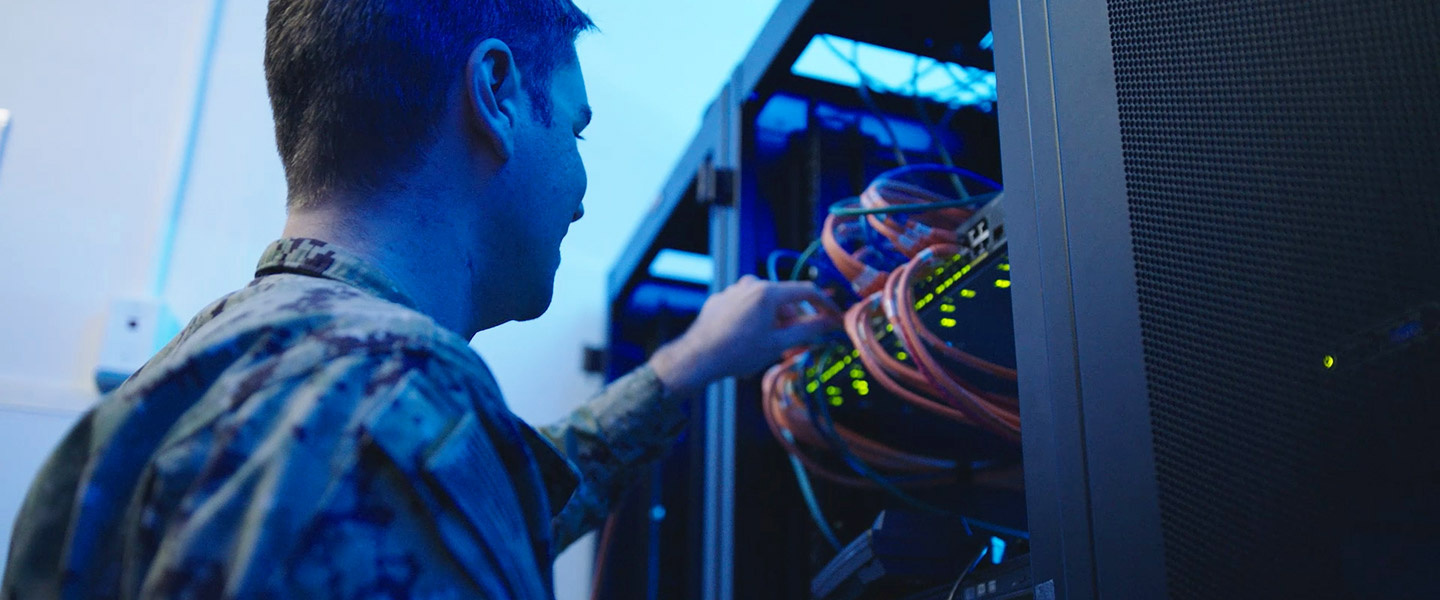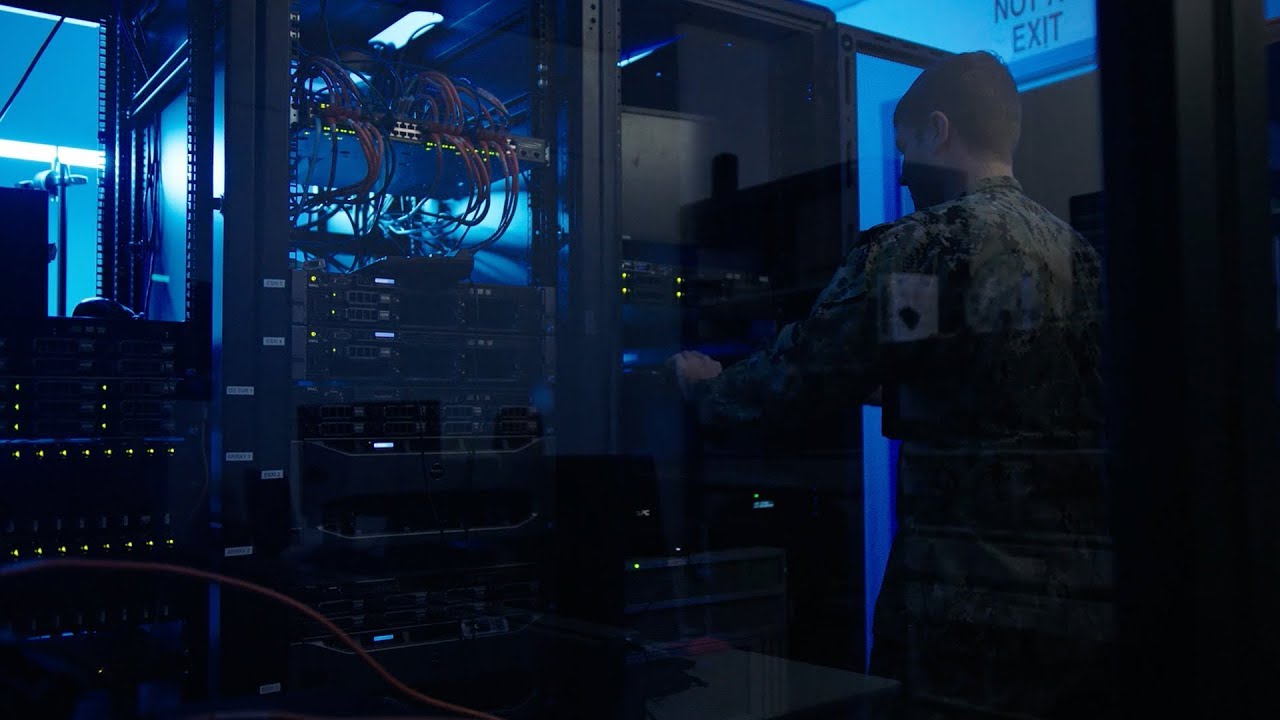What to Expect
More Information
Responsibilities
Cyber Warfare Technicians (CWTs) serve as experts in communication network defense and forensics. Their responsibilities include:
- Monitoring, identifying, collecting and analyzing information
- Providing computer network risk mitigation and network vulnerability assessments and incident response/reconstruction
- Providing network target access tool development
- Conducting computer network operations worldwide in support of Navy and Department of Defense missions
- Detecting, protecting, reacting and responding to threats against Navy networks
Work Environment
Cyber Warfare Technicians perform a variety of duties worldwide, at numerous overseas and stateside shore commands, aboard surface ships, aircraft and submarines and with Naval Special Warfare. They generally divide time between assignments ashore and afloat.
Cyber Warfare Technicians can expect to work in secure office environments, operating and managing computerized Information processing systems and communications circuit control equipment. Normally, they are part of a watch team and may be assigned to Special Warfare units.
As a CWT, you may work independently or as part of small, coordinated teams – ultimately under the supervision of Cryptologic Warfare Officers (four-year degree required), Cyber Warfare Engineers (four-year degree required), or Maritime Cyber Warfare Officers (four-year degree required).
Training & Advancement
Upon completion of initial training at Recruit Training Command Great Lakes (known as Boot Camp), you’ll report for specialized training, including:
Class “A” Technical School (23 weeks) in Pensacola, FL, for training in fundamentals of basic communication and computer/network theory, communication techniques and platforms, basic network configuration, communication troubleshooting theory and techniques, cryptographic equipment operations and communication security.
After you’ve completed training, you may expect assignments worldwide, with duty stations throughout the continental United States and Hawaii. CWTs have opportunities to be assigned to afloat staffs, direct support and shore-based commands. There are limited opportunities for assignment to special warfare commands.
To learn more about the specific training path for Cyber Warfare Technicians, connect with a recruiter.
Promotion opportunities are regularly available but competitive and based on performance.
Advanced Training
Advanced training as a Cyber Warfare Technician may also be available during later stages of your career. For those with further leadership aspirations and a college degree, Officer roles may be available, providing opportunities to lead and train others.
Post-Service Opportunities
Specialized training received and work experience gained in the course of service can lead to valuable credentialing and occupational opportunities in related fields in the civilian sector.
Education Opportunities
Beyond offering access to professional credentials and certifications, Navy technical and operational training in the field of intelligence can translate to credit hours toward a bachelor’s or associate degree through the American Council on Education.
You may also continue your education through undergraduate degree opportunities like the Navy College Program and Tuition Assistance and the Post-9/11 GI Bill.
Qualifications & Requirements
A high school diploma or equivalent is required to become an Enlisted Sailor in the Navy. Those seeking a Cyber Warfare Technician position must be U.S. citizens. Applicants must also meet eligibility requirements for a Top Secret/Sensitive Compartmented Information security clearance.
They should be resourceful, logical and possess an average degree of manual dexterity and exceptionally good character. The ability to learn advanced computer, network and electronic system troubleshooting methods based on complicated technical concepts is also important.
General qualifications may vary depending upon whether you’re currently serving, have served before or have never served before.
Part-Time Opportunities
There are part-time opportunities available as a Cyber Warfare Technician.
Serving part-time as a Navy Reserve Sailor, your duties will be carried out during your scheduled drilling and training periods. During monthly drilling, Cyber Warfare Technicians in the Navy Reserve typically work at a location close to their homes.
For annual training, Cyber Warfare Technicians may serve anywhere in the world, whether on a ship at sea or at bases and installations on shore.
Take a moment to learn more about the general roles and responsibilities of Navy Reserve Sailors.
Most of what you do in the Navy Reserve is considered training. The basic Navy Reserve commitment involves training a minimum of one weekend a month (referred to as drilling) and two weeks a year (referred to as Annual Training) – or the equivalent of that.
Cyber Warfare Technicians in the Navy Reserve serve in an Enlisted role. Before receiving the ongoing professional training that comes with the job, initial training requirements must be met.
For current or former military Enlisted servicemembers, prior experience satisfies the initial Recruit Training requirement, so you will not need to go through Boot Camp again.
For those without prior military experience, you will need to meet the initial Recruit Training requirement by attending Boot Camp in Great Lakes, IL. This training course will prepare you for service in the Navy Reserve and count as your first Annual Training.
































































































































